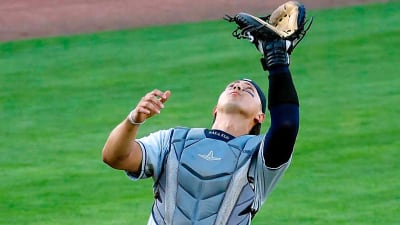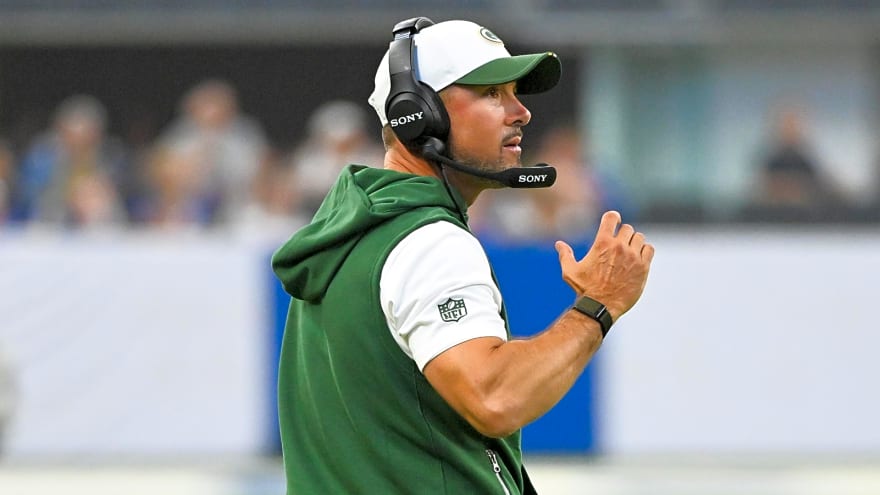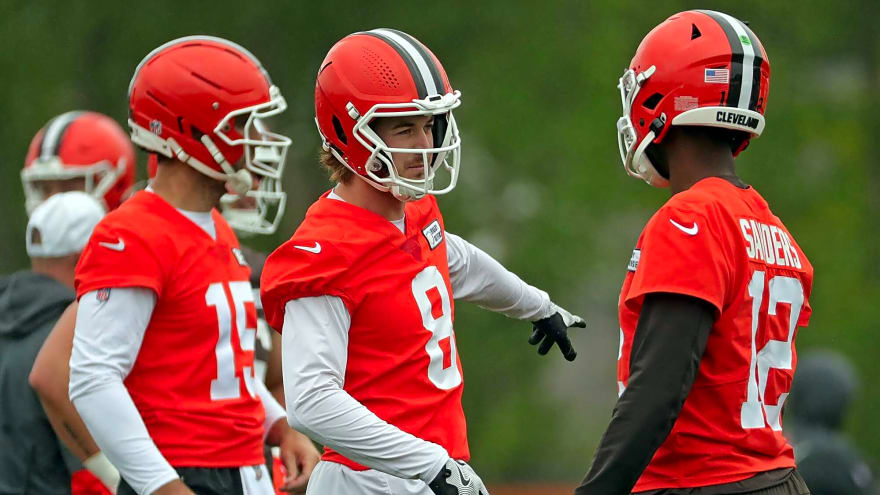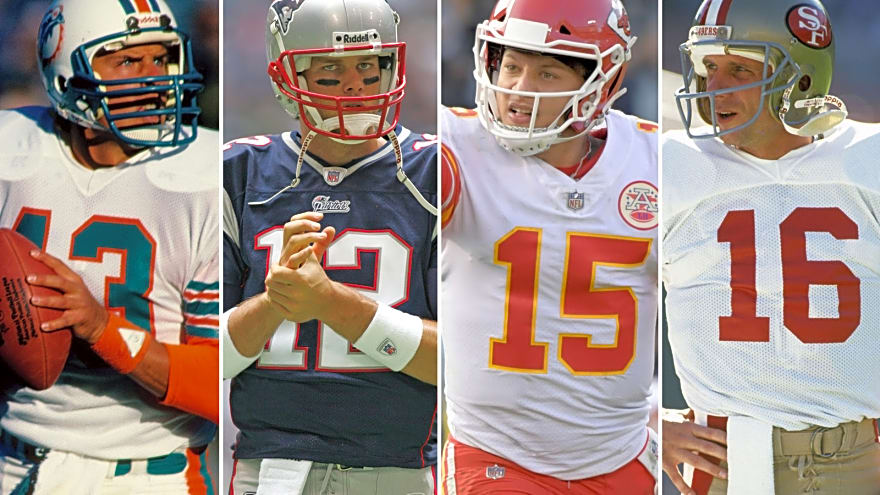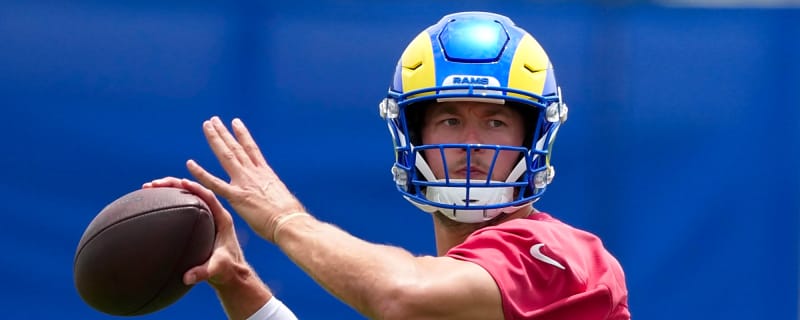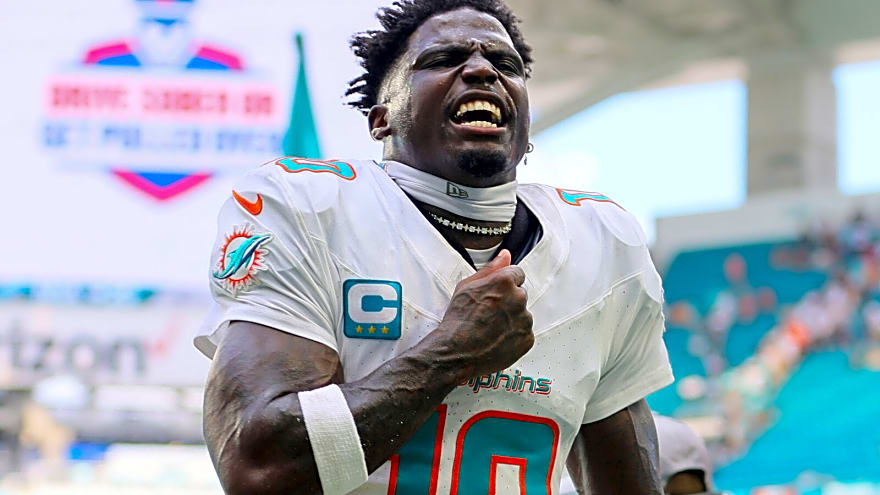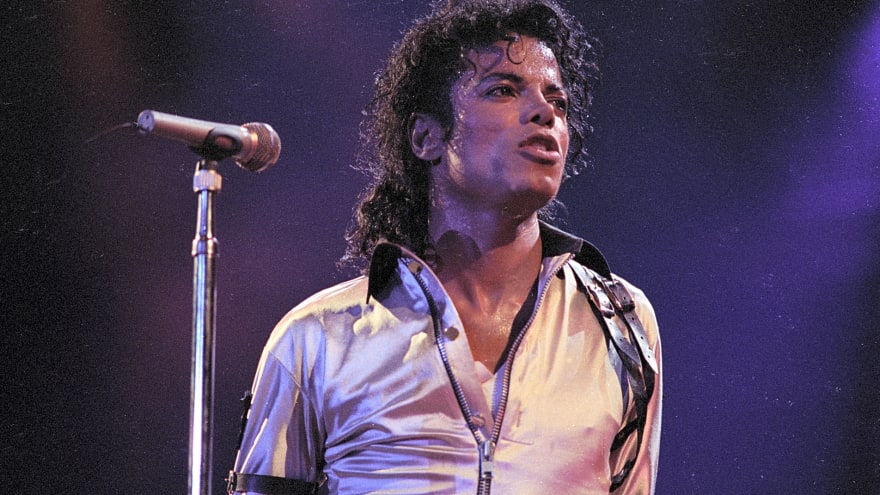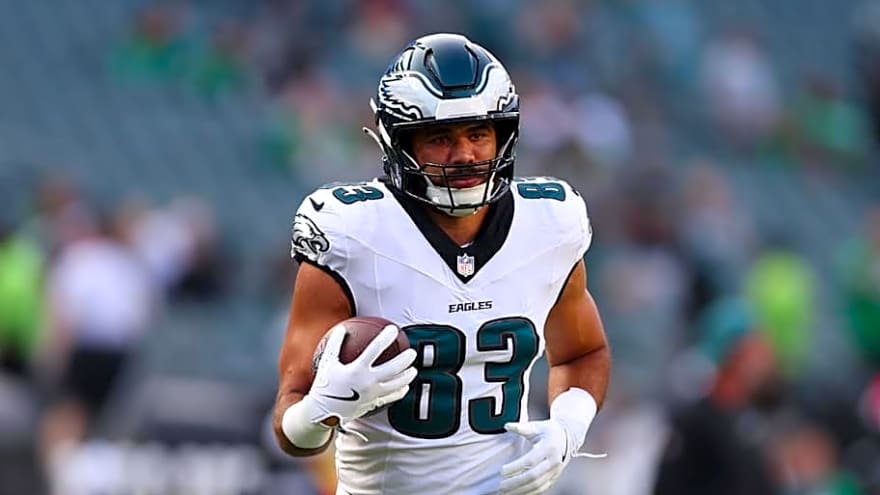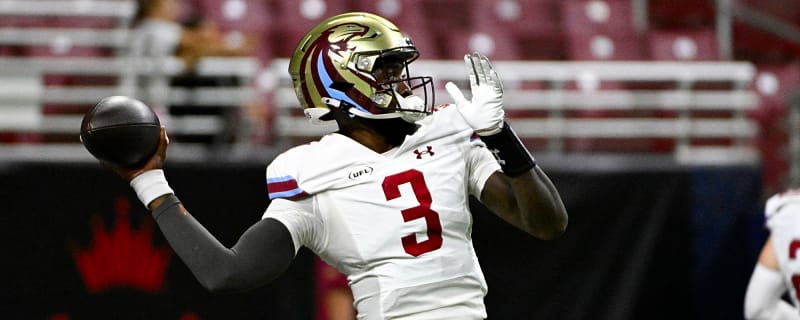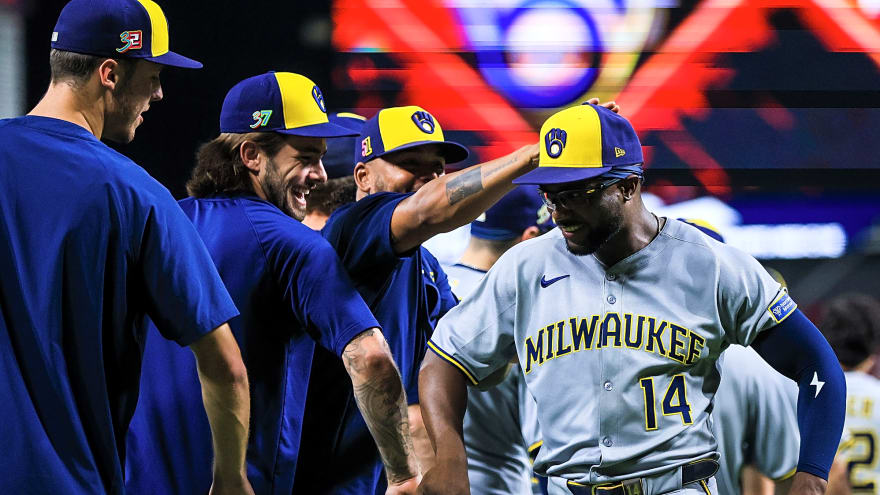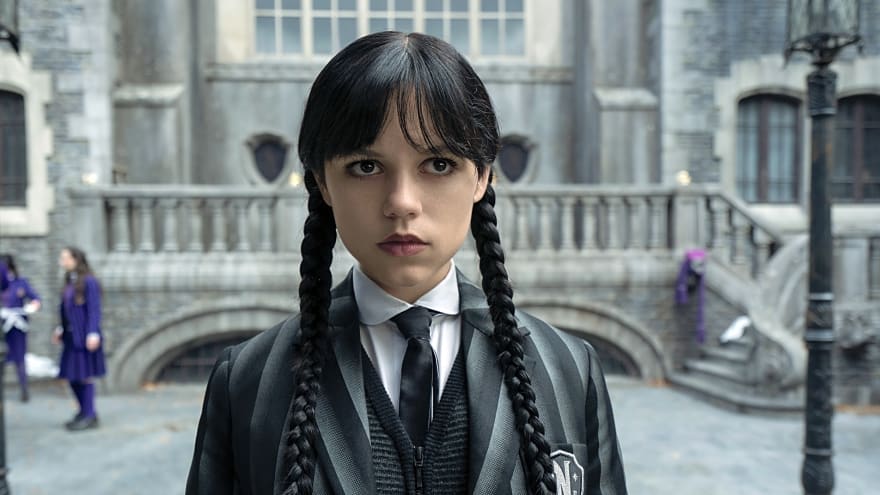
NFL rankings: Teams best, worst equipped for challenging season
The COVID-19 pandemic halted the American team sports calendar for nearly four months. While the NFL did not see its season interrupted or delayed (yet), the coronavirus disrupted nearly everything else about the league this year.
Free agency visits, draft prospects’ pro days, and teams’ OTAs and minicamps did not happen. The preseason will end up somewhere between zero and two games, and several key training camp questions remain unresolved despite rookies’ report dates being days away. The mere negotiations for training camp devolving into a quagmire do not paint a pretty picture of what will happen when teams reconvene as the virus spreads at record rates in numerous NFL states.
This will have sweeping effects on teams. The altered offseason will probably disproportionately impact franchises that made big changes this year or ones set to rely on rookies in essential roles. Continuity has never been more important. Through that lens, we assess which teams are in the best and worst spots to navigate training camp amid the pandemic. All camps are set to begin July 28.
-- Sam Robinson
1. Kansas City Chiefs (12-4 in 2019)
The reigning Super Bowl champions occupy the top spot for many reasons. They have Patrick Mahomes, the best player on the planet, and took away any contractual uncertainty with his mega-extension earlier this month. Kansas City also returns the rest of its offensive braintrust -- head coach Andy Reid and offensive coordinator Eric Bieniemy. Kansas City only drafted one offensive skill player -– first-rounder Clyde Edwards-Helaire -– but because he is a running back, he should be able to get up to speed quickly. In all, the Chiefs return 20 of 22 starters from last year’s Super Bowl champion, and they managed to lock up stud defensive lineman Chris Jones to a long-term contract. It looks like the best got even better, and even in unprecedented circumstances, K.C. shouldn’t miss a beat.
2. Baltimore Ravens (14-2)
The Ravens have suffered through bitter playoff disappointments in each of the past two seasons, but they are poised to remain a force. Their continuity is a big reason why. Ten of 11 offensive starters return, though the one who is gone, likely Hall of Fame guard Marshal Yanda, is a big loss. Baltimore brings back 18 of 22 starters, and the entire coaching staff returns -- including offensive coordinator Greg Roman, who figures to add more schemes to the arsenal. QB Lamar Jackson’s comments about winning a Super Bowl suggest he is more focused than ever, and the Ravens gave him two more weapons in second-round running back J.K. Dobbins and third-round wide receiver Devin Duvernay. One big question is how quickly first-round linebacker Patrick Queen can get up to speed. Given Baltimore’s overall commitment to continuity, it shouldn’t take long.
Few teams had a less interesting draft than the Saints; first-rounder Cesar Ruiz, a center, is expected to start right away, despite not having a traditional offseason. New Orleans’ coaches have been showering him with praise, particularly his ability to pick up blocking schemes quickly and process the mental side of the game. Linebacker Zack Baun and tight end Adam Trautman, both selected in the third round, should also contribute, but the reason the Saints should be able to surmount not having their normal offseason boils down to two men: Drew Brees and Sean Payton. They are entering their 15th year together, and as long as Brees is healthy and productive, the Saints will be dangerous. Brees’ comments about the national anthem still must be re-addressed with his teammates at camp, but beyond that, the Saints are well-positioned to weather offseason turmoil.
The Niners were seven minutes from a Super Bowl when Patrick Mahomes happened. Kyle Shanahan has created stability, and the 49ers experienced minimal roster turnover this offseason, with 18 of 22 starters returning. Coordinator Robert Saleh leads a great defense, which returns players who participated in 88.3 percent of their snaps from 2019, best in the NFL on that side of the ball. Rookie WR Brandon Aiyuk’s run-after-catch skills, combined with Shanahan’s offensive creativity, should be something to behold, and Jimmy Garoppolo, now with a full season under his belt, should not be stunted by the lack of reps to this point in the offseason. The 49ers are built to be good for a long time, and COVID-related disruptions haven’t changed that.
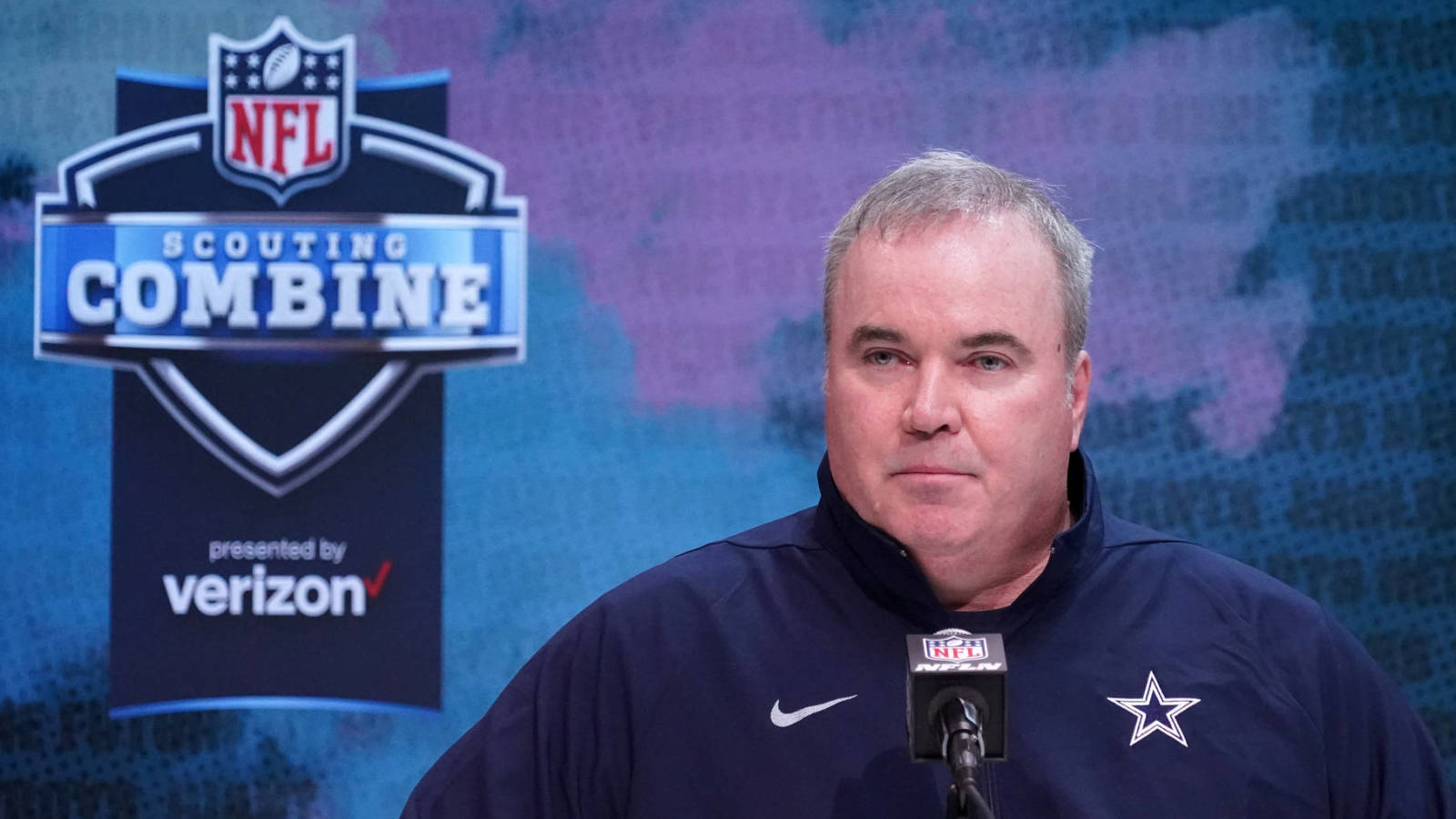
Change was necessary in Dallas, and change was exactly what the Cowboys got. Kellen Moore returns as offensive coordinator, but Mike McCarthy is the new head coach. The lack of an offseason will hurt McCarthy as far as putting his stamp on the offense, but the Cowboys weren’t bad on that side of the ball in 2019; they just needed to be better in big moments. Tweaks here and there from McCarthy could work wonders toward fixing that problem. The Cowboys still bring back 16 of 21 starters, but new defensive coordinator Mike Nolan will have to get second-round corner Trevon Diggs up to speed quickly to help a secondary that lost two starters in free agency. Despite the fact that the Cowboys have a new head coach, the continuity between Moore and Dak Prescott is a major boost when it comes to dealing with a non-traditional start to 2020.
How much tension will the Jordan Love QB pick cause? Aaron Rodgers and Matt LaFleur can put a good face on things, but this seems like an issue that could linger. The flip side to all that negativity is that Rodgers and LaFleur already have a year together, so things are not nearly as bad as they could be. For better or worse, Rodgers knows the direction the offense is headed. They have had plenty of time to talk about philosophies, strategies and, presumably, to iron out some of the tension created by the draft. Rodgers is still an upper-tier quarterback, and his presence should insulate the Packers from most of the negative consequences regarding the pandemic.
The Seahawks must replace 60 percent of their offensive line, less than ideal for a position group where continuity is key. Still, it’s a quarterback league, and Russell Wilson is, at worst, a top-three player at the position and in full command of the offense. His mobility, experience and acumen should help Seattle ease a transition. The entire Seahawks coaching staff is back, and while coordinator Brian Schottenheimer’s overzealous devotion to the run game has rightly received criticism, not having to install a completely new system while breaking in a mostly new offensive line is better than the alternative.
Offensive coordinator Kevin Stefanski’s departure to take the Browns' head coaching job was the biggest part of a coaching brain drain. Minnesota also revamped its defensive hierarchy, with Andre Patterson and Adam Zimmer serving as co-defensive coordinators. Still, head coach Mike Zimmer made it clear that the offense will undergo few changes, so as to better cater to what worked so well for Kirk Cousins last season. New offensive coordinator Gary Kubiak, who has tons of NFL experience, was with the team in 2019, so the offense should be fine. WR Stefon Diggs’ trade to Buffalo got the Vikings a haul in return, and LSU wide receiver Jordan Jefferson should fill the void quickly. The co-defensive coordinator dynamic could be strange, but Minnesota is still better positioned than most teams to hit the ground running.
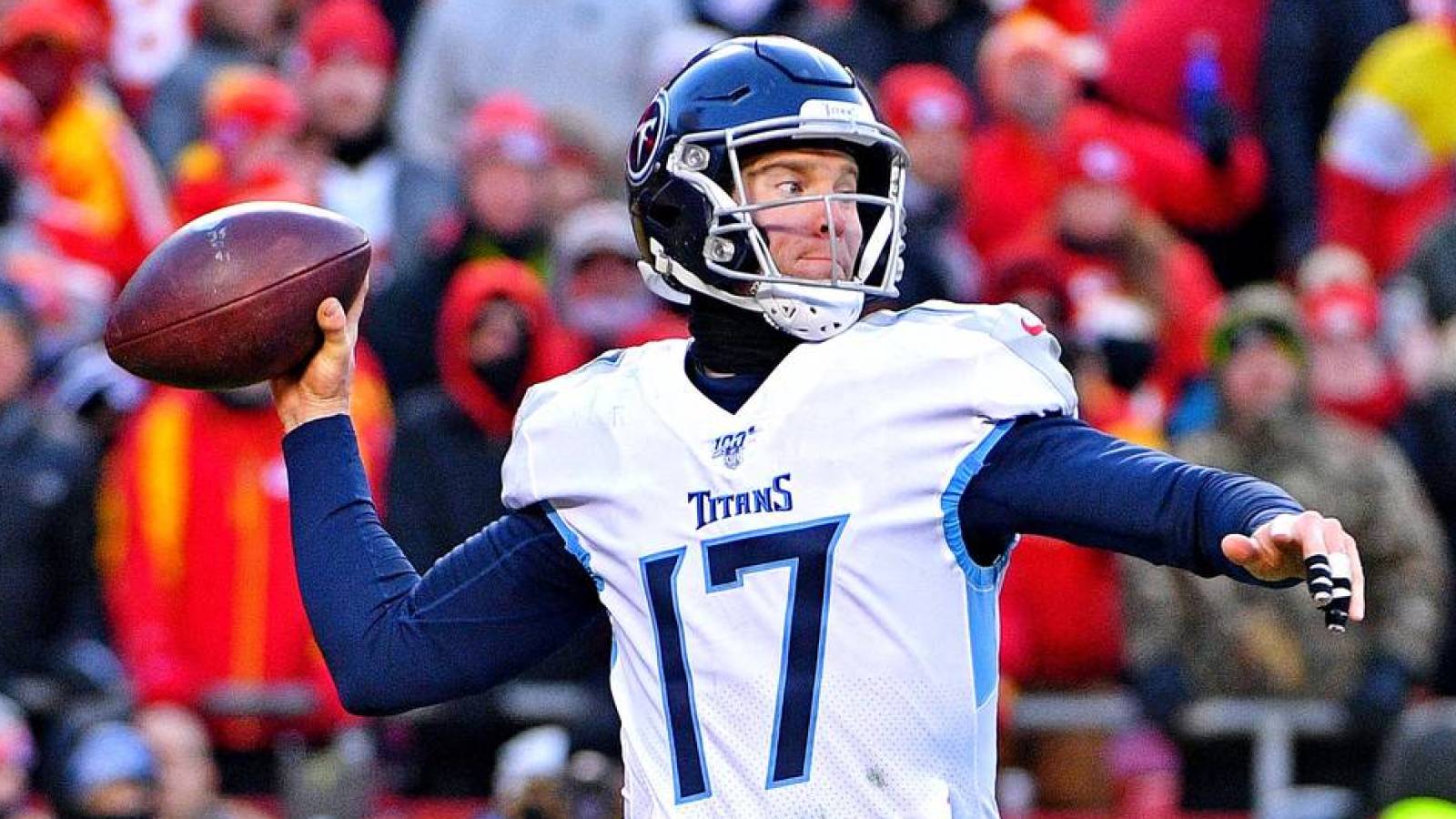
The band is back together in Tennesee; whether that will be a good thing depends almost entirely on QB Ryan Tannehill. The former first-rounder played at an MVP level after taking over for Marcus Mariota last season, and at the very least his presence, in addition to a lucrative, long-term contract, gives the Titans peace of mind at the most important position. The Titans also return all but one offensive starter, and nine on the defensive side. That said, defensive coordinator Dean Pees’ retirement will place an added burden on head coach Mike Vrabel, and puts Vrabel at risk of stretching himself too thin. Philip Rivers’ arrival makes the AFC South tougher, but Tannehill’s breakout last season at the very least gives the Titans an identity, and spares them from having any quarterback drama loom over their offseason.
No team returns a higher percentage of offensive snaps than Buffalo, at 95.4, and the Bills have 20 of 22 starters returning overall. Their coaching staff remained almost completely intact; crucially, offensive coordinator Brian Daboll and defensive coordinator Leslie Frazier return. The Bills have one of the NFL’s most balanced rosters, so why aren’t they closer to the very top of the heap when it comes to handling COVID-caused upheaval? It’s simple: Josh Allen. The third-year quarterback still needs more reps, more polish, and would have benefited from as much in-person coaching as possible. Allen’s talent is prodigious, but his inconsistency could still hold the Bills back.
11. Tampa Bay Buccaneers (7-9)
Tom Brady and Rob Gronkowski spent extensive time away from Patriots offseason workouts in recent years, but they are now transitioning into Bruce Arians’ system. Arians and Brady will likely need to agree on some compromises, with the coach’s deep-passing affinity not conducive to his new quarterback’s talents. Each’s experience should accelerate this process, though. First-round pick Tristan Wirfs, the presumptive right tackle starter, drew a tough assignment, however. The new CBA slashed the padded training camp practice limit from 28 to 16. The previous CBA’s limitations stunted offensive linemen’s development in the 2010s. Couple the new format with a pandemic-altered offseason and this shapes up as the worst year for rookie O-linemen to assimilate to the NFL.
This will be Ben Roethlisberger’s 17th NFL training camp and 14th with head coach Mike Tomlin. The Steelers have a third-year offensive coordinator (Randy Fichtner) and a sixth-year defensive boss (Keith Butler). They bring back 10 starters from a revitalized defense. If Roethlisberger is healthy, Pittsburgh would be in excellent shape. But he is coming off the most significant injury of his career, which required elbow surgery and extensive rehab, and is now 38. Big Ben did not look especially good in the first six quarters of the Steelers’ post-Antonio Brown era last season, either. Despite the Steelers’ backup QBs plunging their offensive DVOA ranking from sixth to 32nd, the team did not add better Ben insurance on what turned out to be the best QB buyer’s market in free agency’s 28-year history.
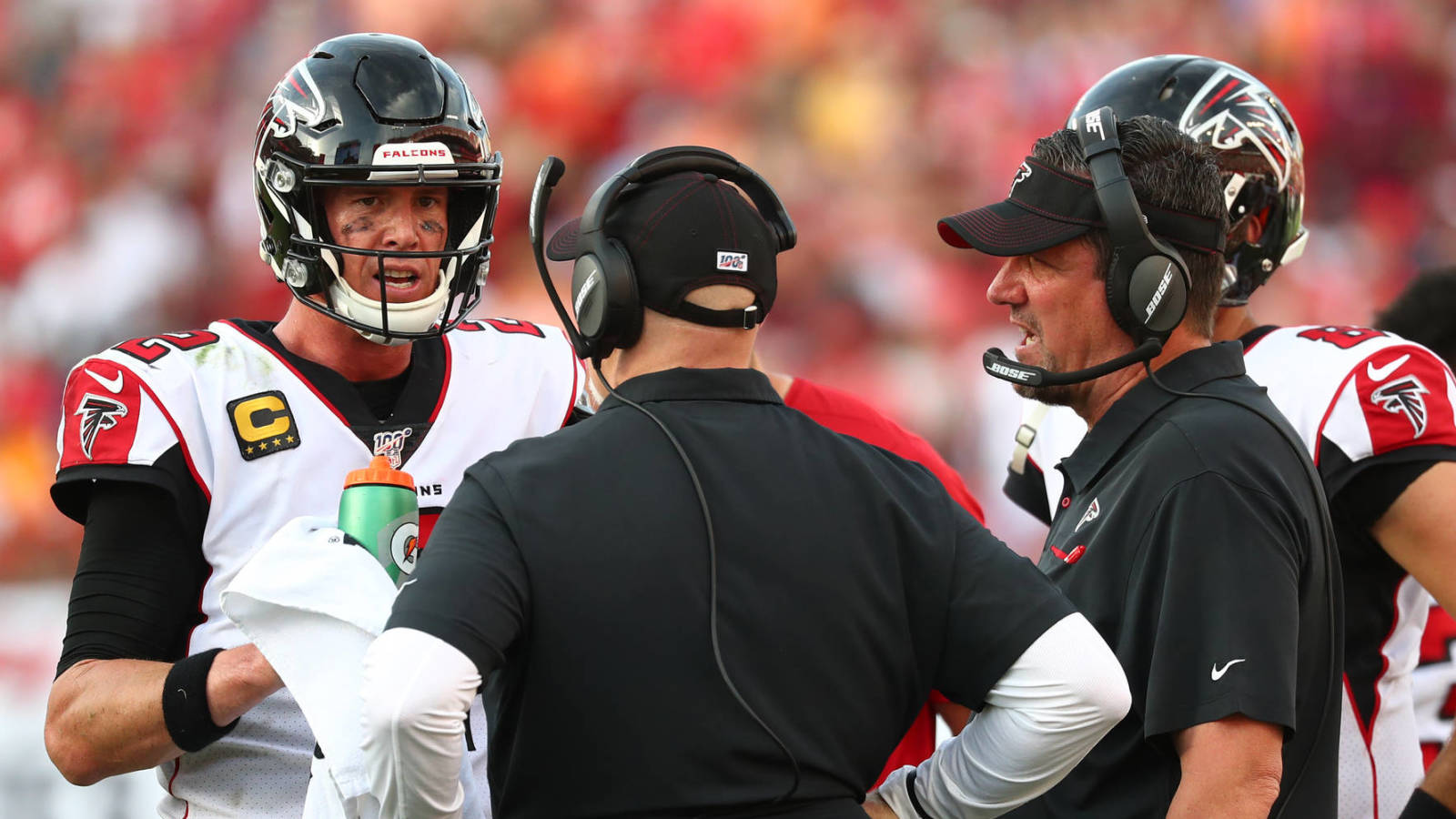
Despite replacing Devonta Freeman with Todd Gurley and replacing longtime No. 1 cornerback Desmond Trufant with first-round pick A.J. Terrell, the Falcons should be in decent shape. Matt Ryan will lead the way in his 13th camp. He will be working with Dirk Koetter, the former Buccaneers head coach now in his second season of stint No. 2 as Falcons offensive coordinator, and sixth-year HC Dan Quinn. Ex-Bucs HC Raheem Morris did well upon taking over Atlanta’s defense at midseason; he has rare experience on both sides of the ball. Quinn’s credentials are debatable, after back-to-back sub-.500 seasons, but the Falcons’ staff and roster seasoning will help during this uncertain time.
Unlike the relocations of Tom Brady (Bucs) and Teddy Bridgewater (Panthers), Philip Rivers’ team change may not bring a big adjustment. Two of his former offensive coordinators with the Chargers -– Frank Reich and Shane Steichen –- run the Colts’ offense. Reich, in Year 3 as Indianapolis’ head coach, said Rivers knew 80-85% of the team’s playbook months ago. Couple this with the Colts returning all five starters from a strong offensive line and it creates a favorable setting amid chaos. Some issues may arise among Rivers’ aerial corps, with the Colts hoping Round 2 pick Michael Pittman Jr. and 2019 second-rounder Parris Campbell become their Nos. 2-3 wideouts. One is a rookie, the other missed most of his rookie year.
This marks Year 5 of the Doug Pederson-Carson Wentz partnership; that is quietly the second-longest active run between a quarterback and play-caller (behind Sean Payton-Drew Brees). Likely Hall of Fame left tackle Jason Peters’ re-signing (and switch to guard to replace injured Pro Bowler Brandon Brooks) provides continuity and dominance for the Eagles’ O-line. Two key issues: wide receiver and linebacker. Alshon Jeffery may well be bound for the reserve/PUP list, which would shelve him for camp and the regular season’s first six weeks, putting pressure on raw first-rounder Jalen Reagor to contribute early. The Eagles cut four-year starting linebacker Nigel Bradham and are essentially starting over at this position at a bad time.
This can be looked at in multiple ways. HC Bill O’Brien and QB Deshaun Watson are entering their fourth season together and, for once, the Texans have offensive line stability. All five starters are back. The less optimistic view: This is the wrong year to have both a new play-caller and a first-time defensive coordinator. O’Brien gave the play-calling reins to 33-year-old offensive coordinator Tim Kelly, and ex-D-line coach Anthony Weaver will succeed Romeo Crennel. Oh, and WR DeAndre Hopkins is gone. Houston’s offenses ran through the All-Pro wideout for five years. At least Hopkins’ replacements are not rookies, with Randall Cobb and Brandin Cooks bringing 15 combined years of experience.
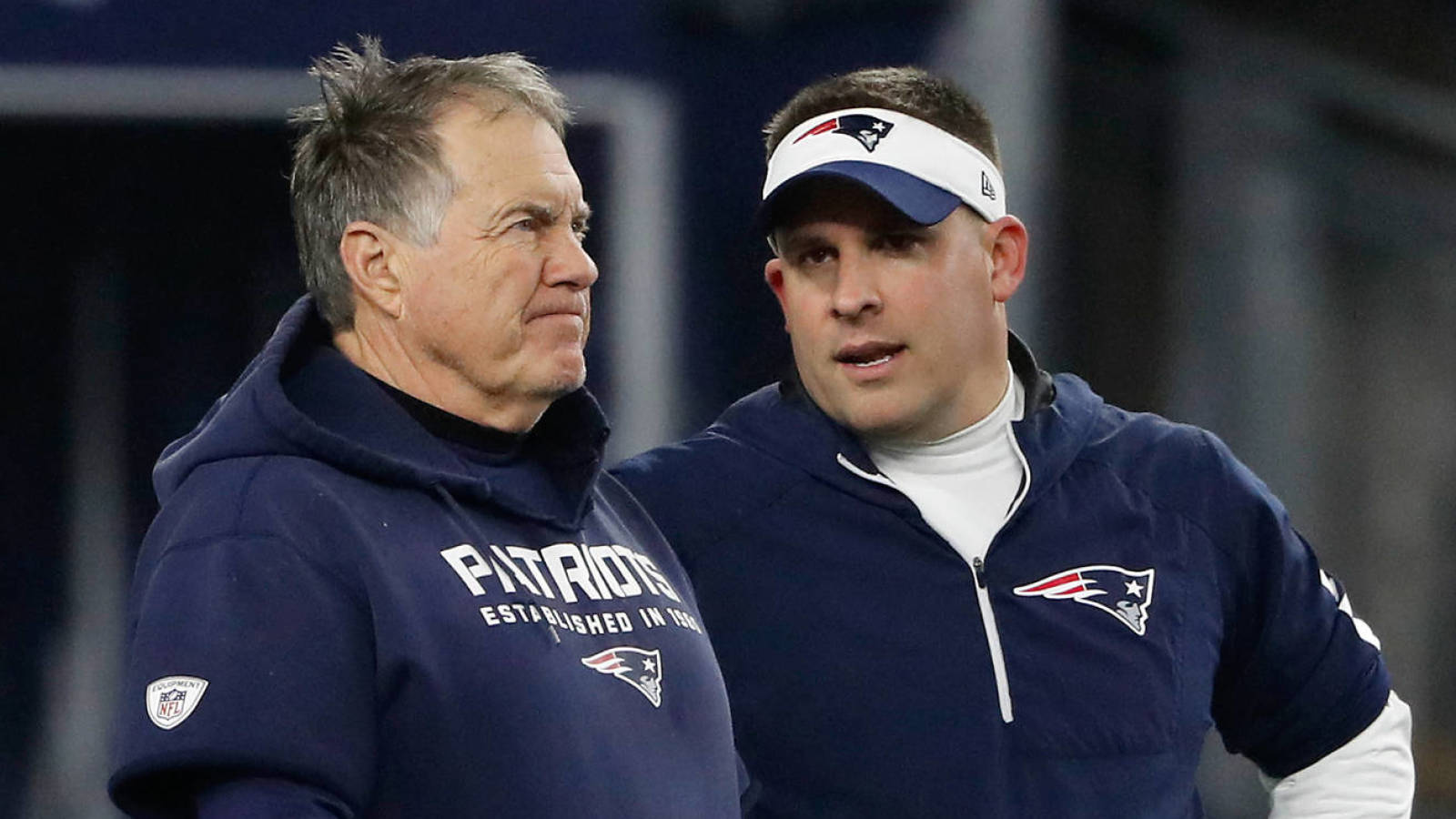
17. New England Patriots (12-4)
No team comes close to the Patriots’ coaching continuity. Head coach Bill Belichick and OC Josh McDaniels are in their 13th season together (through two McDaniels stints) as the leaders of the Pats’ defense and offense. That will be vital because this offseason involved the most upheaval in Belichick’s 20-year tenure. Cam Newton had no offseason work with his new teammates, and he has rarely been healthy since Super Bowl 50. The former MVP may only be here because potential Tom Brady successor Jarrett Stidham missed out on a crucial offseason of development going into his second season. While the Pats are on track to return five offensive line starters, acclaimed O-line coach Dante Scarnecchia retired again. In a uniquely poor offseason for O-line training, that should matter -– especially regarding young left tackle Isaiah Wynn’s growth.
18. Arizona Cardinals (5-10-1)
This will be a challenge for second-year Cardinals coach Kliff Kingsbury, who is mentoring second-year quarterback Kyler Murray. The presence of passing-game coordinator Tom Clements, a 21-year NFL sideline veteran, and 17th-year wideout Larry Fitzgerald will be critical. Only 100% committed to football for a year and change, Murray, who once had MLB ambitions, has yet to go through a full NFL offseason. He will enjoy the luxury of throwing to a future Hall of Famer (Fitzgerald) and a 28-year-old weapon on a Canton track (DeAndre Hopkins). Defensive coordinator Vance Joseph has standouts Chandler Jones and Patrick Peterson, but the Cards also feature four first- or second-year projected starters on defense.
This is Year 4 for the Sean McVay-Jared Goff duo, but much has changed from their NFC championship apex. Goff saw the Rams’ suddenly shaky O-line accelerate his 2019 regression. The Rams did not make any notable additions up front, so that group missing the offseason will sting. Multiple projected starters on the O-line have fewer than 10 games’ worth of starting experience. Defensively, the Rams ditched revered DC Wade Phillips for first-time coordinator Brandon Staley and lost three more quality starters (linebackers Dante Fowler and Cory Littleton and safety Eric Weddle). McVay, however, still elevates this situation substantially.
This will be Jon Gruden’s 13th training camp as a head coach, while Derek Carr enters Year 7. The Raiders also return their starting O-line, one of the league’s best blocking quintets. But the coaching staff must prepare first-round pick Henry Ruggs, who will make the strange transition from Alabama supporting-caster to NFL WR1, and a player many believed was a major Round 1 reach (cornerback Damon Arnette) without onsite offseason work. The Raiders have not finished as a top-16 scoring defense in 18 years, and third-year DC Paul Guenther’s unit may have eight starters either in their second NFL seasons or their first as Raiders. Guenther’s task will be more difficult than Gruden’s.
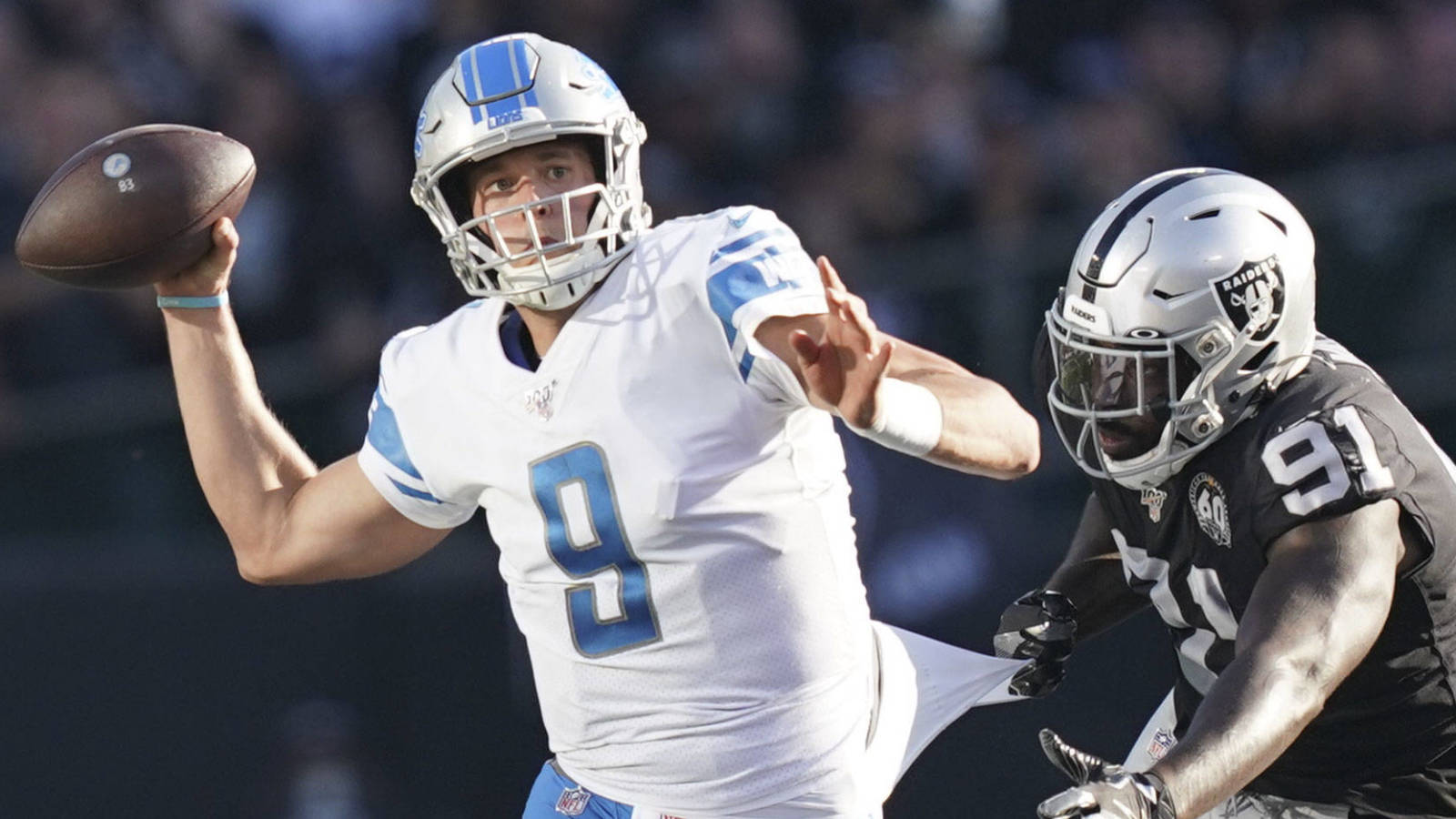
Matthew Stafford returns for a 12th training camp as the Lions’ centerpiece player, and Chase Daniel provides a massive QB2 upgrade. But the Lions gave career Eagles spot-starter Halapoulivaati Vaitai a big contract to be their starting right tackle. That transition obviously comes at an unfortunate time. Matt Patricia has yet to show he is a capable NFL head coach; the Lions have ranked 28th in defensive DVOA in each of the ex-Patriot coordinator’s two seasons. Detroit also has a first-time DC in Cory Undlin. While Undlin has been an NFL assistant since 2004, this is a difficult assignment. The ex-defensive backs coach will be asked to prepare No. 3 overall pick Jeff Okudah to replace All-Pro corner Darius Slay.
Chicago has the defensive talent and continuity to whether this storm. Most of the key pieces that have powered their defense to success over the past two seasons remain (Khalil Mack, Eddie Jackson, Akiem Hicks, Bilal Nichols, Eddie Goldman, Roquan Smith, Kyle Fuller and Danny Trevathan). Chicago's main issue is on offense. Nick Foles and Mitch Trubisky are set to have a quarterback competition that could play a key role in deciding the franchise's future. With minimal practice time and potentially no preseason games, the Bears may not be able to make the most educated decision on this crucial matter.
The Giants are in a tough position. They will be trying to foster a Year 2 leap from Daniel Jones as he transitions into a new offense led by Jason Garrett, in addition to ushering in a new head coach in Joe Judge. It is always difficult for a new coaching staff to acclimate. Toss in the removal of rookie minicamp, OTAs, and, potentially, preseason games, and things get even more difficult. The Giants also will be starting a rookie at offensive tackle.
Denver would rank much higher in a talent-based power ranking, but its young roster may have a tough time hitting the ground running with such minimal time to prepare. Rookies Jerry Jeudy (WR), K.J. Hamler (WR) and Lloyd Cushenberry (C) are expected to startt. Second-year QB Drew Lock will be making his first opening-week start after leading Denver to a 4-1 finish. He could have used all the time he could get to build chemistry with his young receiving group.
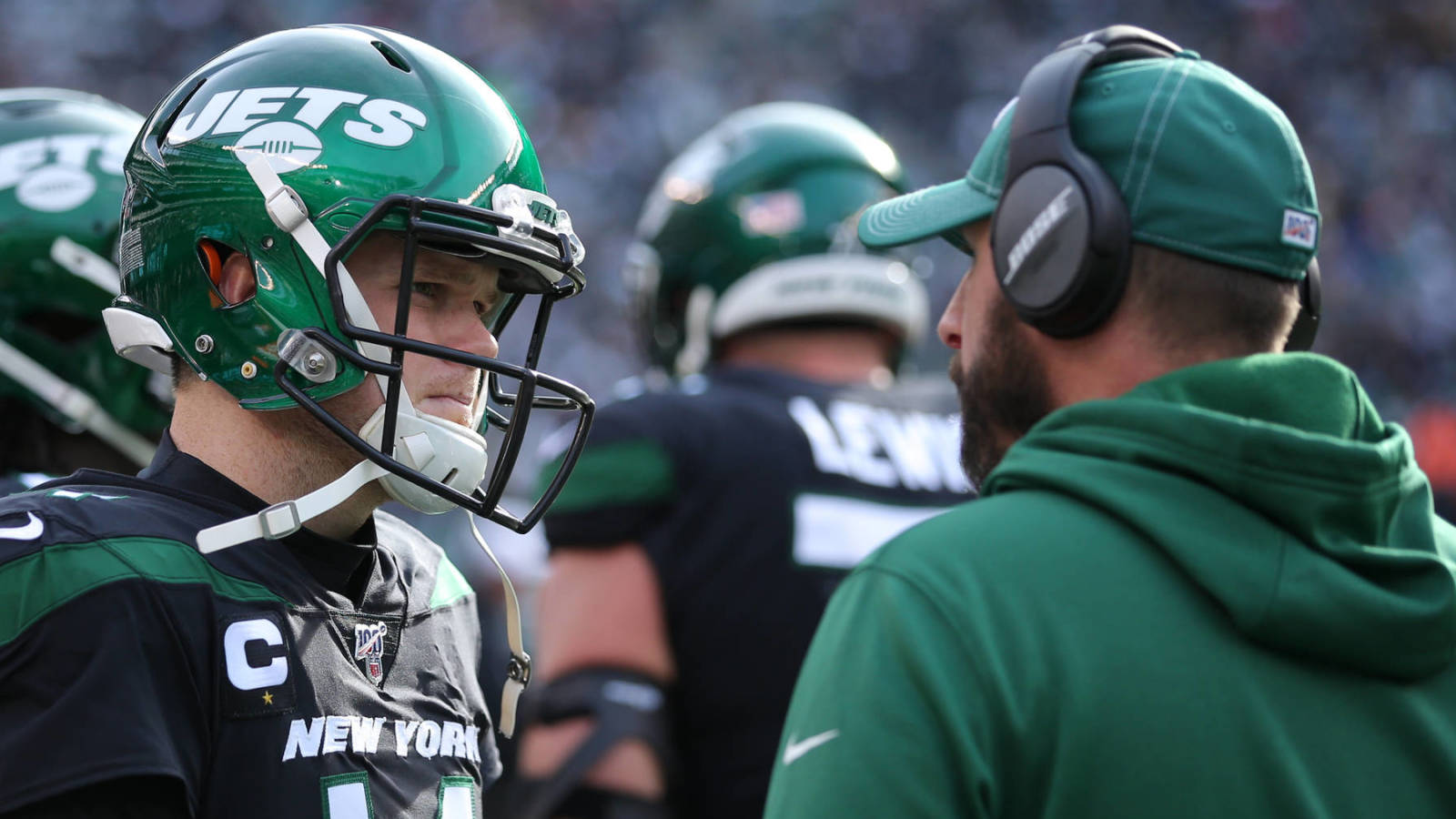
The Jets have continuity at head coach (Adam Gase) and quarterback (Sam Darnold) that some of the other teams near the bottom of this list do not. But their offensive line is massively overhauled -- not ideal for a season wracked by COVID. Communication and chemistry are extremely important for that position, perhaps more than any other. With four new starters coming in, the Jets' offensive line could head into Week 1 with a serious lack of chemistry. New York will also have new starting wide receivers in Breshad Perriman and second-round pick Denzel Mims. This overhauled offense will need time in-season to build chemistry. That could lead to a daunting start.
Cleveland's talent level is far better than No. 26, but there are serious questions regarding the Browns' ability to thrive without ample time to gel in the offseason. The additions of Jack Conklin (free agent) and rookie Jedrick Wills (first-round pick) give the Browns much-needed drastic upgrades at offensive tackle, but it will be tough for them to gel with their quarterback and linemates in a limited time. Most importantly, the Browns need time to install a new offense and culture under new head coach Kevin Stefanski and offensive coordinator Alex Van Pelt.
27. Los Angeles Chargers (5-11)
Los Angeles might have top-10 talent, but it all comes down to quarterback. Tyrod Taylor is a tailor-made stopgap QB to hold the position for rookie Justin Herbert. But without much time to learn the system of new offensive coordinator Shane Steichen, he could turn out to be even more of a checkdown machine than usual. It's also possible that Herbert's ascension into the starting lineup will be delayed due to the lack of a true offseason or preseason games.
While the Dolphins patched a ton of holes in free agency and the draft, the 2020 season will not be kind to teams that are loaded with newcomers. Miami will likely have six free-agent acquisitions starting on either offense or defense, and its 11-player draft class could feature a handful of starters as well. Rookie quarterback Tua Tagovaiola was never likely to start in Week 1 anyway, but the likelihood of him stealing the opening-week job has decreased because of a lack of practice.
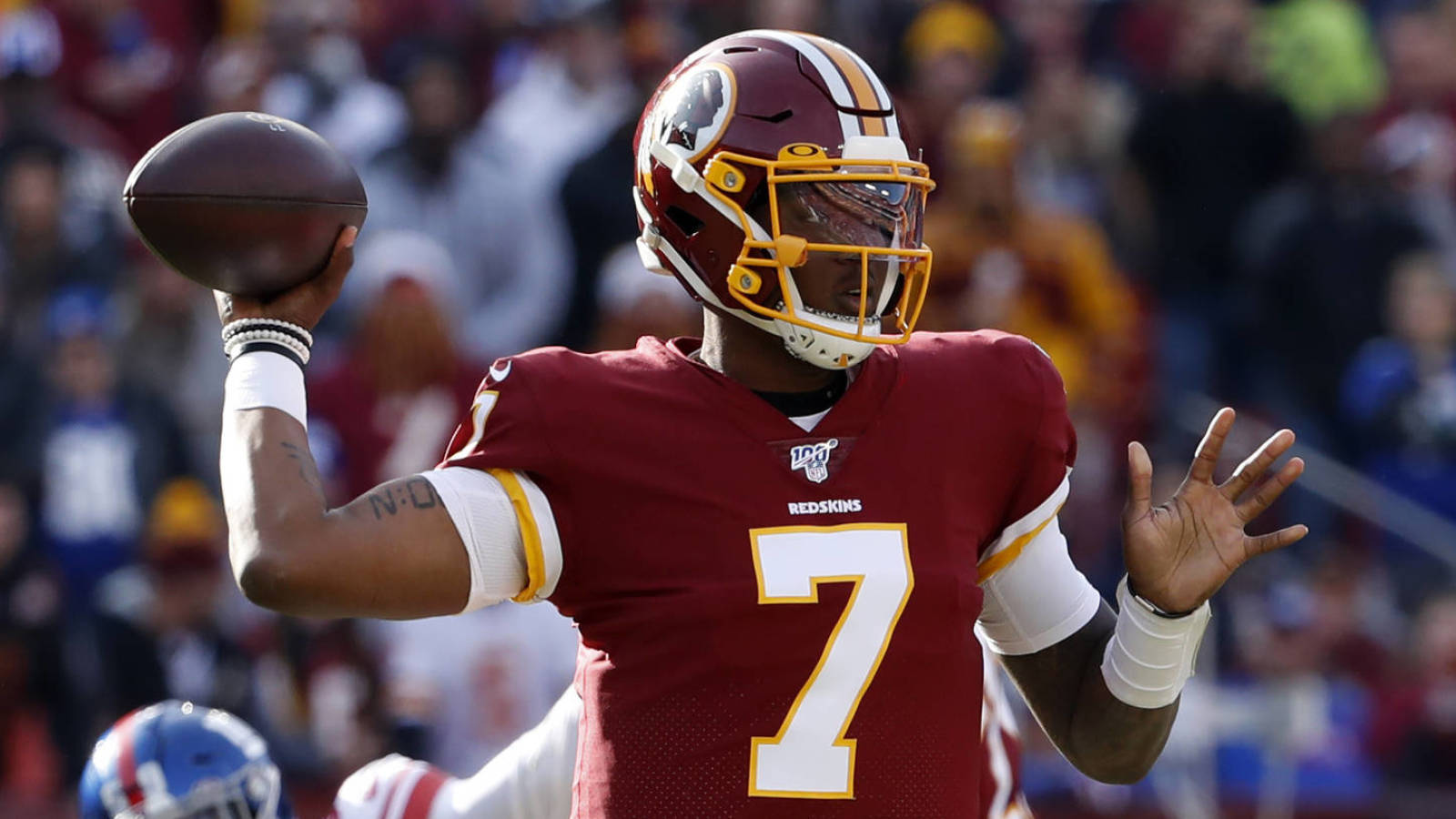
29. Washington Redskins (3-13)
Washington has a new head coach (Ron Rivera), offensive coordinator (Scott Turner) and defensive coordinator (Jack Del Rio). QB Dwayne Haskins, who was awful as a rookie, will aim to make a massive jump in his second season, which could be a difficult proposition as he acclimates into a new offense. To Washington's credit, the defense features plenty of returning faces and newly signed Thomas Davis, a longtime Panthers linebacker, who has plenty of experience in Rivera's defense.
30. Jacksonville Jaguars (6-10)
QB Gardner Minshew had a surprisingly promising rookie season. His chances of a breakout in Year 2 could be hampered by the lack of time to adjust to the new offense of Jay Gruden, who has replaced John DeFilippo at offensive coordinator. On defense, Jacksonville is also set to start two rookies (OLB K'Lavon Chaisson and corner C.J. Henderson) and three free-agent pickups (LB Joe Schobert, DE Rodney Gunter and CB Rashaan Melvin). Some Jaguars fans might appreciate these detriments as they might aid in the chase for Clemson QB Trevor Lawrence in the 2021 draft.
The 2020 circumstances will be most treacherous for teams that are bringing in a new coaching staff. Installing new offensive and defensive systems is difficult. Establishing a new culture is another tall order without much face-to-face interaction. These are the issues that Carolina will be dealing with as it looks to begin its next chapter with a new head coach (Matt Rhule), offensive coordinator (Joe Brady), defensive coordinator (Phil Snow) and quarterback (Teddy Bridgewater).
Joe Burrow, the former LSU star, will start for the Bengals on Day 1. It is always tough to expect much from a rookie quarterback, regardless of talent level, and that fact will only be emphasized further in a season devoid of the usual luxuries that would help a young player make the professional transition. Expect another ugly season for the Bengals. One positive: Veteran receiver A.J. Green, who missed all last season with an injury, returns. He and Burrow must quickly connect on -- and off -- the field.
(Chris Mueller rankings 1-11, Sam Robinson 12-21, Michael Nania 22-32)
More must-reads:
- These Achilles' heels could hamstring Super Bowl contenders
- Chiefs' rivals have improved, but they may be fatally flawed
- The 'Season rushing TD leaders by NFL team' quiz
Breaking News
Trending News
Customize Your Newsletter
 +
+
Get the latest news and rumors, customized to your favorite sports and teams. Emailed daily. Always free!
TODAY'S BEST

Vikings GM Kwesi Adofo-Mensah's biggest find is ready to take a huge step forward, and it could be huge for Brian Flores' defense
After joint practice on Wednesday between the Minnesota Vikings and New England Patriots, I was asked by some members of the Patriots beat about just one player. "Who's 61? He's a dude." That player is Jalen Redmond, who has quite the story heading into his second season with the Vikings. He was playing in the UFL in the spring of 2024 with the Arlington Renegades. He was a signing the Vikings made on June 18th, 2024, which came after mandatory minicamp. Redmond was the 90th player on the roster and excelled throughout training camp to earn a roster spot. That ability is showing up once again. Jalen Redmond is taking another step forward The signing of Redmond was a massive win for general manager Kwesi Adofo-Mensah and his scouting staff, especially Ryan Grigson, who was given a lot of credit for finding him. "I remember he [Grigson] called me and said, 'I like this guy.' I think it was late May," Adofo-Mensah explained. "You have to ask yourself, what's your standard for bringing people in, because a lot of good players are on teams already, so there's going to be something there that's not perfect, not clean, and earlier he had injuries, so you've got to understand why he's available, but ultimately here's why he might be a good bet. "And you saw the flashes for an interior guy with burst, his run defense kind of jumped out to me. That's the other thing, when you've been together for two or three years, and my history with Grigson before, he knows how to communicate with me, makes a cut-up, knows exactly what we look for." You can see the power and explosiveness in Redmond's game. He rarely gets washed out by the offensive line, and often penetrates the backfield with his ability. Where things have gotten really interesting with Redmons is seeing how good he can be from a short and long-term perspective. Last season, Redmond played in 13 games and flashed in a major way. While he went undrafted out of Oklahoma, it wasn't so much due to talent, but a health issue that kept him from being selected. He certainly looks like a player who should have been selected. Over the course of the season, Redmond got one sack and 6.0 tackles for loss to pair with 18 tackles. His ability to be a penetrating force on the line earned him a starting role at the end of the season, with two starts in his first year with the Vikings. Going into year two, Redmond shouldn't be overlooked. He won't be a starter with the additions of Jonathan Allen and Javon Hargrave, but it shouldn't be much of a surprise if he approaches 500 snaps as a rotational player. His teammates believe he's a stud, something that Jonathan Greenard emphasized last week. "Redmond is a dog," said Greenard after Redmond's great practice on Thursday. "Jalen's been a dog since last year in training camp. I knew he was a dog when he got thrown out of practices last year. So I was like, listen, from that day forward, he got thrown out, he came back in just completely, just dominating. And at that point even to see it during the season and see him continuously build. Now I'm like, man, everybody knows, but when you see, obviously, you bring in two guys like JA [Jonathan Allen] and Grave [Javon Hargrave], you kind of think that he gets put in the wayside, making the same place he was last year, if not more. And that just helps us out to know that it's not gonna drop off whenever those guys get a breather or something like that. If I'm coaching, I'm putting him in." Don't sleep on Redmond going into this season, as he's only getting better.

Milwaukee Brewers: Craig Counsell Blasts Former Team’s 14-Game Winning Streak, Gets Caught Lying

Steelers' Rookie Defender Receives Strong Stamp Of Approval Following 2nd Preseason Game
The Pittsburgh Steelers are finding out a lot about their young players in the 2025 preseason, but there may be nobody who has surprised as much as rookie defensive end Yahya Black. A fifth-round pick out of Iowa, Black was touted as a stout, plugging run defender with not much else to offer. Through two preseason games, he's poised to prove everyone wrong. Black gained some notoriety in 2025 training camp from batting down passes at the line of scrimmage, something he likely learned from veteran defensive end Cameron Heyward. In his first preseason game against the Jacksonville Jaguars, his presence didn't go unnoticed among NFL analysts. While rushing the passer was supposed to be a weakness, Black hasn't shown it so far. Pro Football Focus gave him a pass rush grade of 82.3 in Week 1, logging a pressure, a hurry, and two tackles on only 11 total snaps. In addition, he had a respectable run defense grade of 72.6. Black was PFF's fourth highest graded rookie interior defensive lineman in Week 1 of the preseason. Playing only seven pass-rush snaps, he had an impressive 42.9% pass rush win rate. Brian Baldinger and PFF aren't the only ones taking notice of Black. Bob Labriola of the Steelers' official website, in his recent asked and answered segment, wrote that he believes that Black won't only make the roster, but will be a regular in the defensive line rotation. "With training camp and 1 preseason game under his belt, I believe Yayha Black is on the path to showing enough to be a part of the regular season gameday rotation along the defensive line." Those are certainly strong words towards day three draft pick, but they definitely aren't unwarranted. Steelers Head Coach Mike Tomlin also had some encouraging remarks for the young lineman following the 2025 NFL Draft, comparing him to a Ford F-350. In a limited sample size, and coming off of a good camp, Black has proven that his supposed weaknesses may have been misguided, and that there's more to him than early scouting reports suggested. There's no longer a question of whether he will make the team, and now the focus moves onto how much he will contribute right away in a crowded defensive line room. If Black can continue to show some pass rush versatility in addition to his already promising run defense, it'll be hard to keep him off of the field. Steelers' Yahya Black Is Dealing With A Concerning Arm Injury While Black got off to an explosive start in his first preseason game, things quieted down on Saturday against the Tampa Bay Buccaneers. At least part of his disappearance in Week 2 can be attributed to an arm injury that Black suffered between the two games, prompting him to wear an arm brace that undoubtedly limited mobility. Black's PFF grade in game 2 plummeted to 54.3, with only a 50.5 pass rush grade. These grades are reflected in the box score, where Black played over double the snaps from the previous week and failed to record a single stat. Nonetheless, Black is looking to build on his promising start in the final week of the 2025 preseason, when the Steelers travel to Charlotte to take on the Carolina Panthers. Will Black continue to build on his promising first performance, over a week removed from injury, and make his case for the starting defensive line rotation? The Steelers certainly hope so.
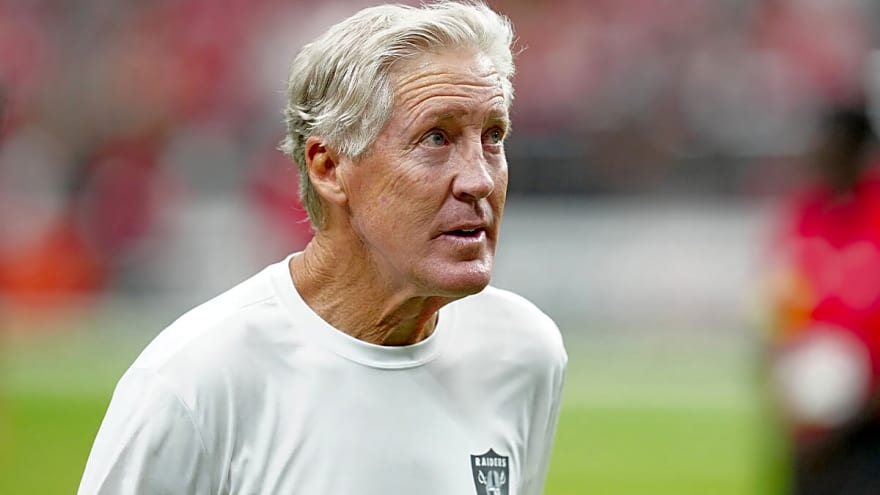
Raiders’ Pete Carroll gushes about key offseason acquisition after loss to 49ers
While most Las Vegas Raiders fans are excited about Ashton Jeanty in the preseason, other players under the radar made an impact in the 22-19 loss to the San Francisco 49ers on Saturday. When the Raiders signed former Pittsburgh Steelers safety Terrell Edmunds, people were wondering how he would perform, as he’s already caught the attention of head coach Pete Carroll. After Edmunds recorded five total tackles (fourth on the team), three of them solo, against San Francisco, Carroll would be asked about his thoughts on the former first-round pick’s performance. Carroll would say how much he “really” likes Edmunds and how much of a “very versatile player” he is for the system, according to Anthony Galaviz. “I like him. Yeah, I really like him. I like the experience that he brings,” Carroll said. “He’s been in a lot of situations. He’s been a very versatile player in the style that he’s been asked to play, and that’s shown up already.” Edmunds would speak with reporters for the first time last Tuesday since being signed by Las Vegas and shared how “excited” he was to start a new chapter in his NFL journey. “My first thoughts when the opportunity presented itself, I was just excited,” Edmunds said, via the team’s YouTube page. “Excited to come and join a new team, excited to come and join these guys. I saw how much they were grinding. I watched the (preseason) game before I even came out here.” Pete Carroll on the Raiders losing to the 49ers in the preseason Despite the loss from the Raiders to the 49ers, Carroll would point out the one positive being that it was a “hard-fought game from start to finish,” with many areas that need correction. “First off, I thought this was a really good, hard-fought game from start to finish,” Pete Carroll said in his post-game press conference, via the team’s website. “We had some things that we needed to correct from the practice that we had, and we did. Played the running game much more with impact than we did in practice.” “The adjustments the coaches made worked out well, players were able to adapt in just a couple days time,” Carroll continued. “Against a really formidable running team that loves to run the football, I thought we did that really well. Just a terrific game back and forth the whole time.” Consequently, as Edmunds looks for Las Vegas to be his permanent team, they open the season on Sunday, Sept. 7, against the New England Patriots.

Shane Steichen dropped a big hint about the Colts’ QB battle
The Indianapolis Colts have yet to name their starting quarterback for the 2025 season, but coach Shane Steichen may have dropped a big hint about who the choice may be. Steichen said Saturday that he was close to making a decision between Daniel Jones and Anthony Richardson in the ongoing camp battle. He may have tipped his hand, however, when answering a question about what traits he was looking for in his starter. “I think it’s the most consistent guy,” Steichen said, via Joel A. Erickson of the Indianapolis Star. “I really do, because at the end of the day, you’ve got to be able to move the football consistently up and down the field, and making good decisions. You know what I mean? I mean, at the end of the day, you can have splash plays, but if you’re doing that sparingly and up and down. … I think it’s got to be on a consistent basis, to get to where we want to go.” The knock on Richardson all along has been his inconsistency, and it is a bad sign for his prospects that Steichen put such an emphasis on that as part of his answer. Richardson’s physical talents are undeniable, but his decision-making has left something to be desired, and the offense has at times stalled out with him at the helm of it. Jones does not bring Richardson’s big-play potential, but would likely leave the Colts with a better idea of what they will get every Sunday. Richardson has put in extra work to try to win the job, but has been sidelined for a large part of the offseason with a shoulder injury, coupled with a dislocated pinky suffered during the preseason opener. It has also been suggested that Jones entered camp as the favorite, so Richardson had to play well enough to supplant him. Jones started Saturday’s preseason game and went 7-of-11 for 101 yards. Richardson went 6-of-11 for 73 yards, but he had one big play negated due to a penalty. The Colts ultimately lost 23-19 to the Green Bay Packers.




